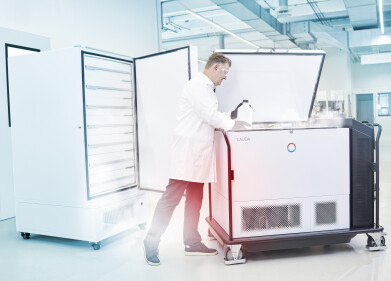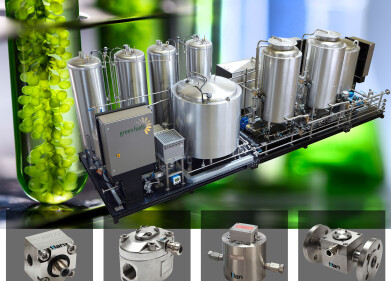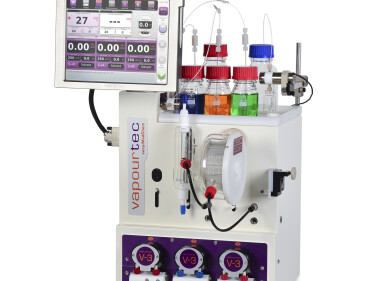Laboratory Products
Why is Sanitation Important in the Laboratory?
Sep 21 2022
From maximising the reliability and accuracy of results to protecting the safety of personnel, sanitation is critical in the laboratory. Read on to find out more about why it’s so important and how to improve sanitation standards in laboratories of all shapes and sizes.
Cleaning vs sanitation
When developing laboratory hygiene guidelines, it’s important to understand the difference between cleaning and sanitation. The pair are similar but have some fundamental differences and each require specific products, tools and guidelines.
- Cleaning describes the surface removal of debris and other materials. For example, rinsing out a glass beaker with tap water or wiping down a laboratory hot plate with a damp cloth.
- Sanitation goes beyond surface level cleaning and removes pathogens and other ‘invisible’ debris. It follows cleaning and is designed to completely eradicate all contaminants.
Here’s why sanitation in the laboratory matters:
Preventing contamination
Even the smallest traces of metals and other elements can compromise the integrity of laboratory results. This can have a domino effect and lead to more issues down the line. For example, in the food testing industry compromised results can pose a risk to public health. Preventing contamination is also critical in microbiology laboratories, where miniscule chemical, physical and microbial impurities can affect results.
“The most common biological encountered contaminates are bacteria, moulds, yeasts, viruses, mycoplasma, as well as cross contamination by other cell lines,” reads a report published in the International Journal of Research Studies in Biosciences. “To overcome the challenge numerous strategies must be daily exercised such as obtaining pure and viable cells from reputable gene banks; checking the characteristics of the culture periodically, and practicing good aseptic technique, and using antibiotics routinely.”
Safeguarding personnel
Good sanitation practices aren’t just about maximising the reliability and accuracy of results. They’re also designed to protect laboratory personnel. Following the COVID-19 pandemic, practices like regular handwashing and sanitation stations have become more important than ever. Clear sanitation rules for laboratories handling chemicals and other potentially dangerous substances form the backbone of health and safety compliance.
Protecting the external environments
Laboratories generate a significant amount of waste. This can be in the form of liquid chemicals, solid debris, biological waste, pathogens, plant material and more. Good sanitation practices should always feature in laboratory waste disposal guidelines. Waste should be identified and characterised before being placed in appropriate containers and clearly labelled. Personnel should then consult waste disposal protocols before discarding the waste. This not only prevents contamination within the laboratory but protects external environments.
If waste is harmful or infectious, it must be classified as biohazardous. Similarly, materials such as slides and petri dishes that require special handling should be disposed of with care. This also applies to sharps such as syringes, needles, razor blades and scalpels that can puncture the skin.
A one-size-fits-all approach doesn’t cut it when it comes to laboratory hygiene. Find out more about the different and highly specialised methods used to clean everything from glassware to hot plates in ‘Laboratory Hygiene - A Comprehensive Guide’.
Digital Edition
Lab Asia 31.2 April 2024
April 2024
In This Edition Chromatography Articles - Approaches to troubleshooting an SPE method for the analysis of oligonucleotides (pt i) - High-precision liquid flow processes demand full fluidic c...
View all digital editions
Events
Apr 17 2024 Tokyo, Japan
Apr 22 2024 Marrakech, Morroco
Making Pharmaceuticals Exhibition & Conference
Apr 23 2024 Coventry, UK
Apr 23 2024 Kintex, South Korea
Apr 23 2024 Seoul, South Korea









.jpg)








